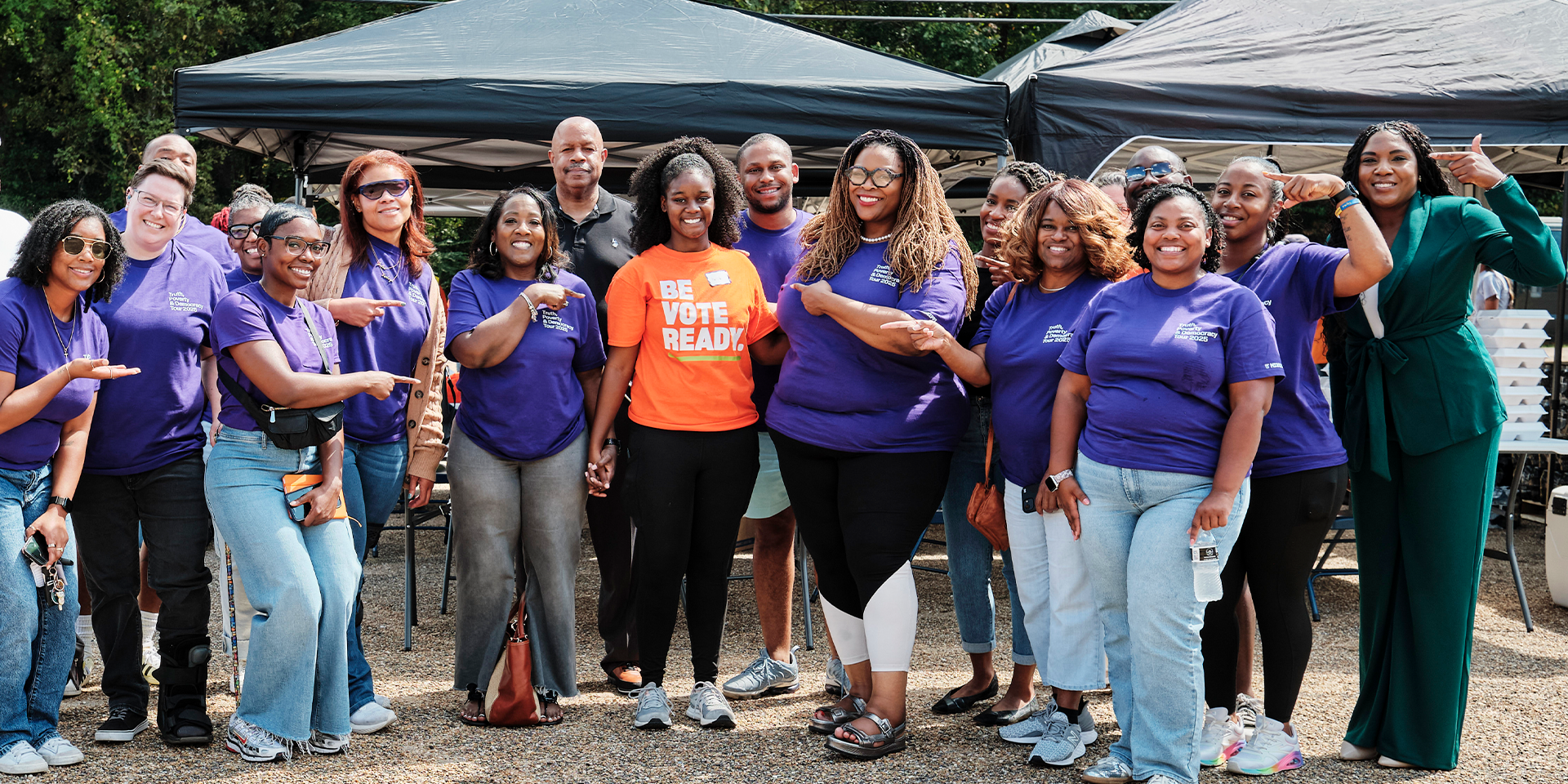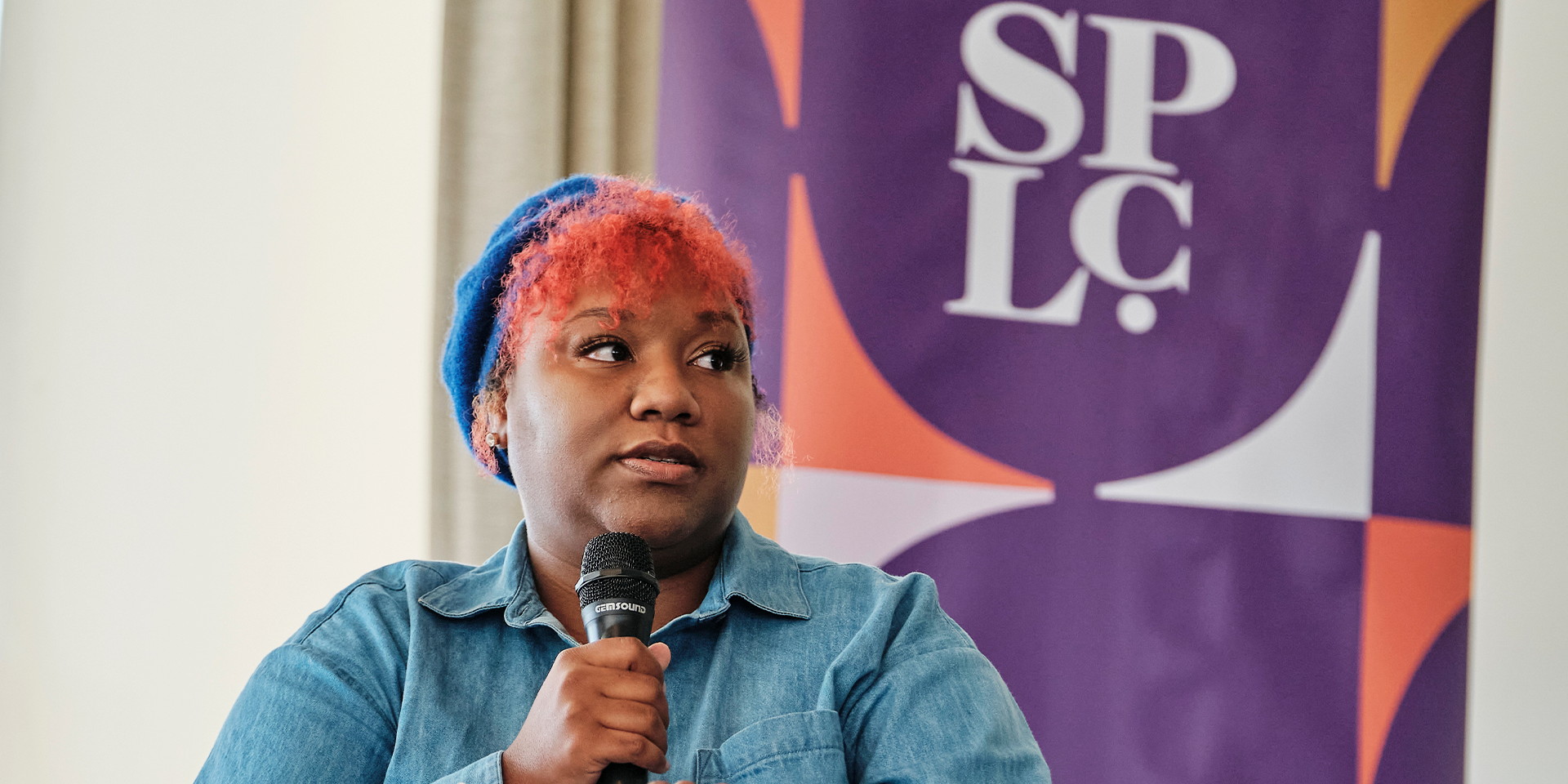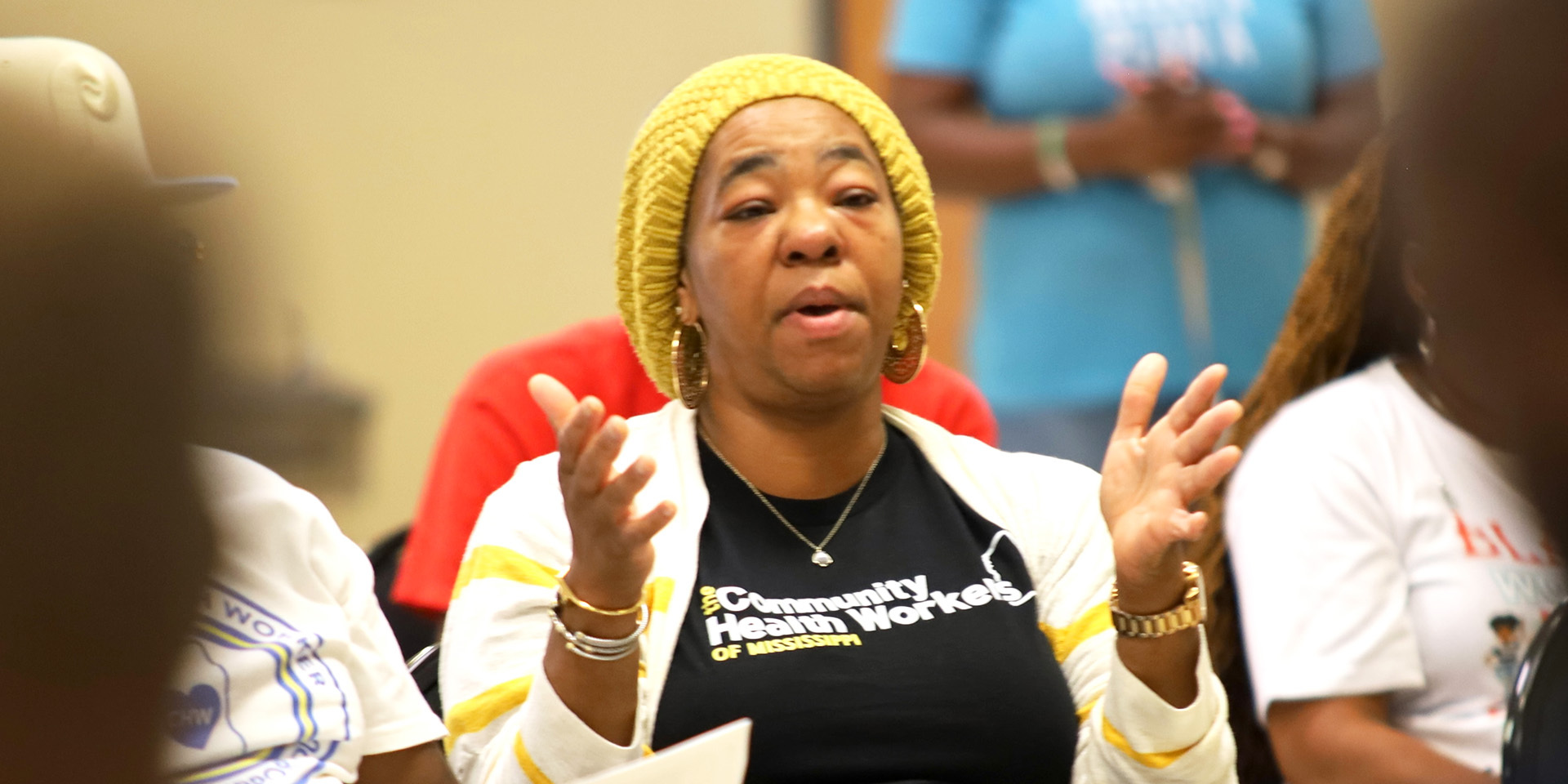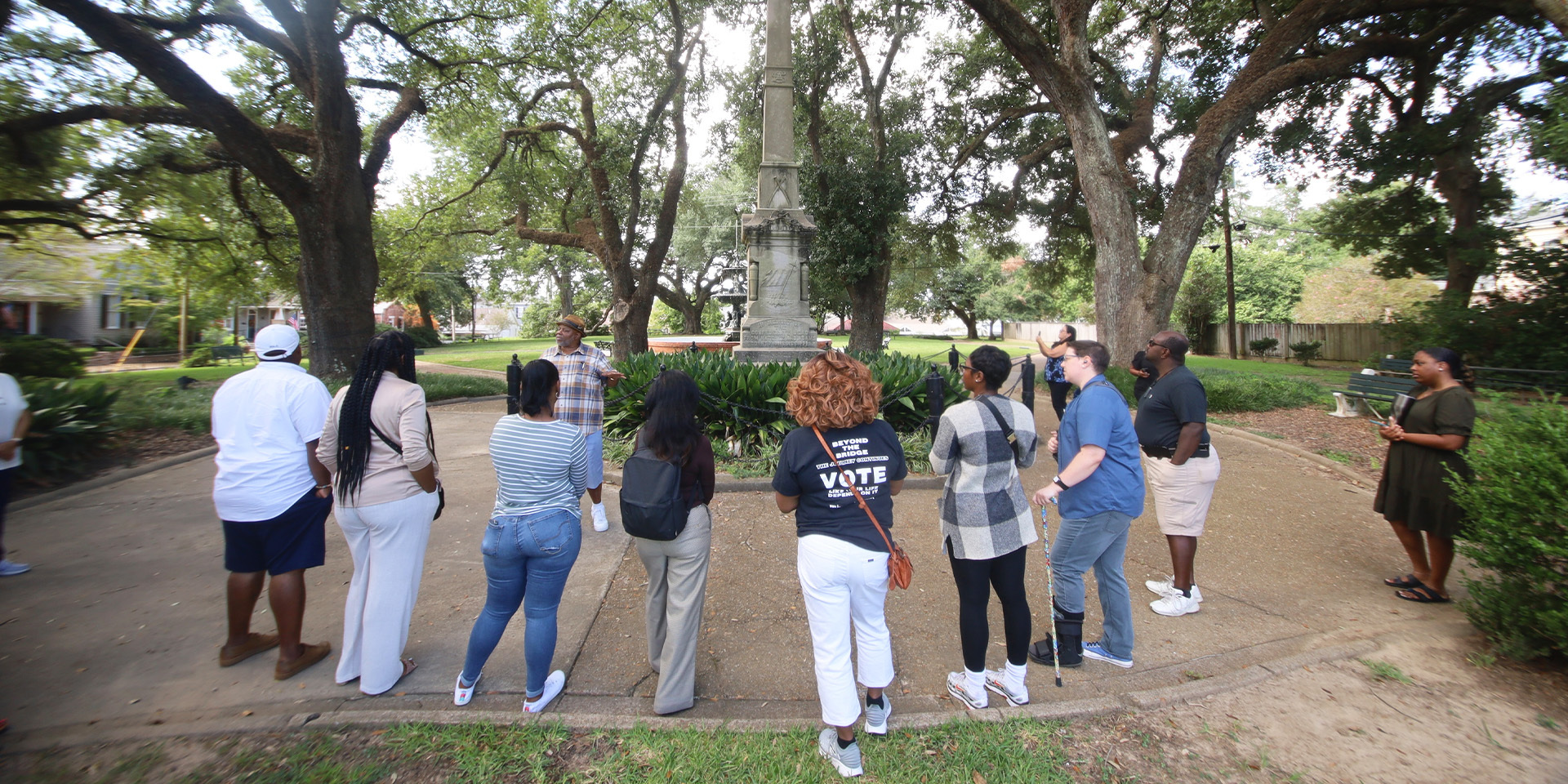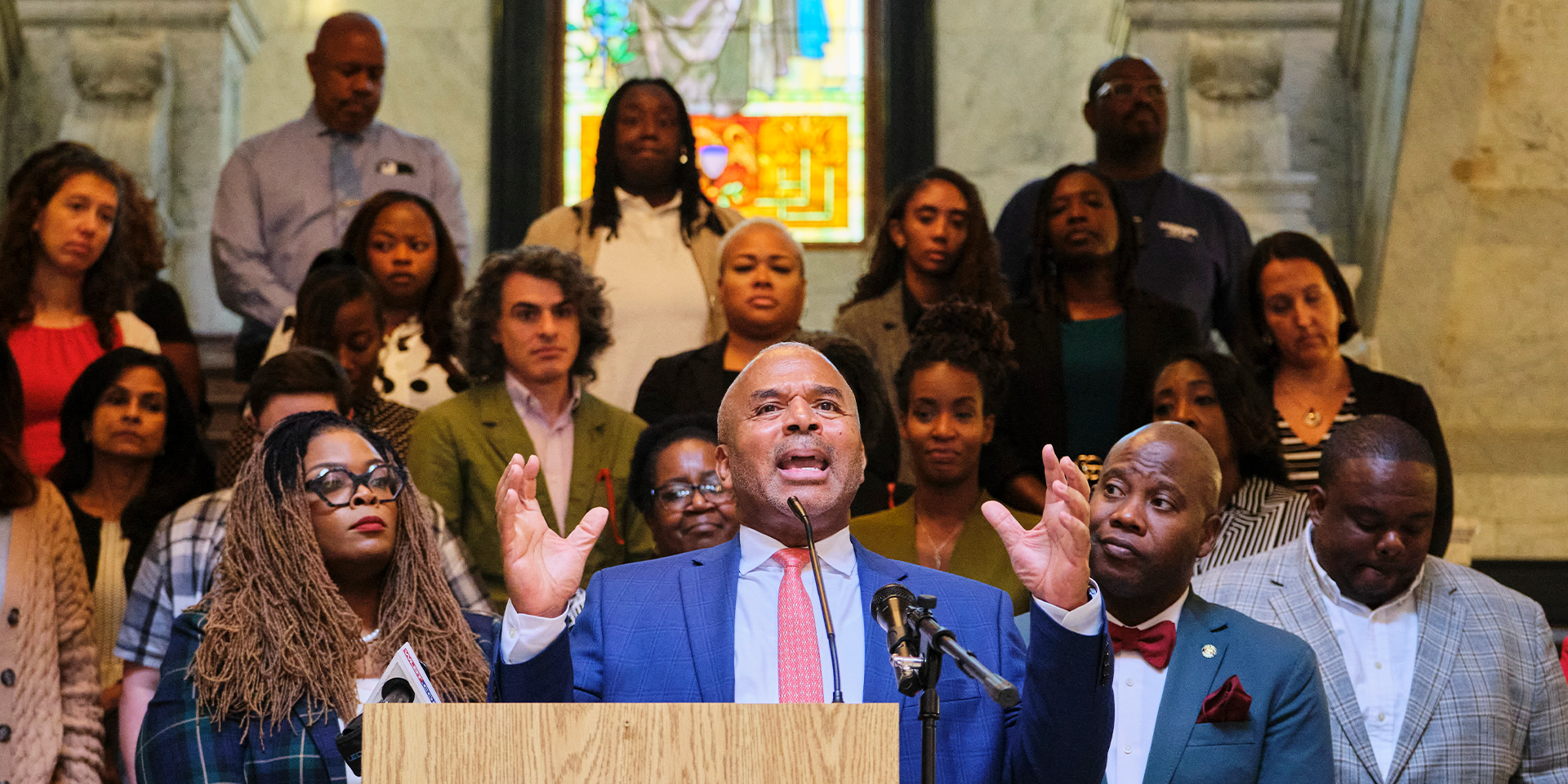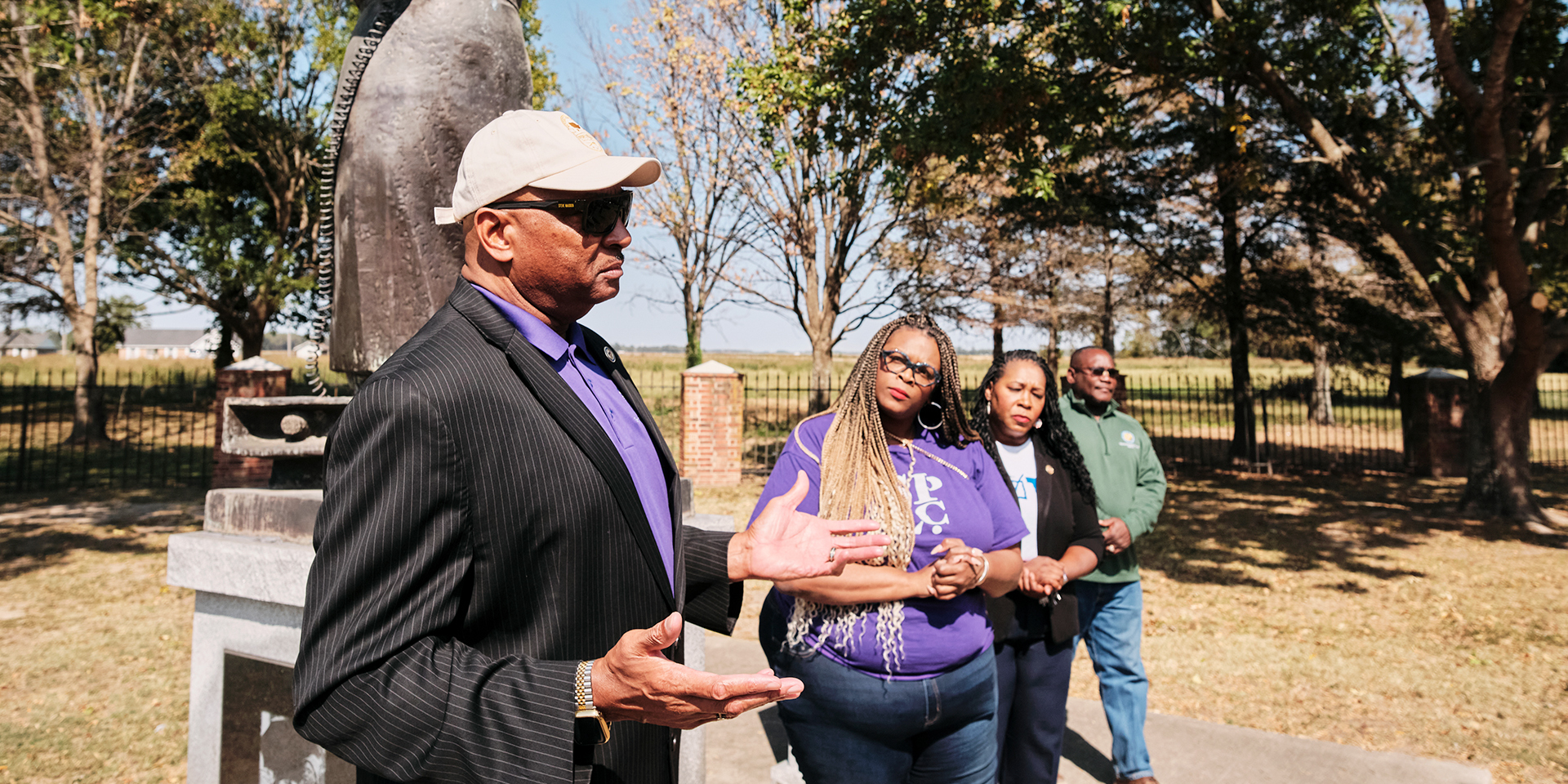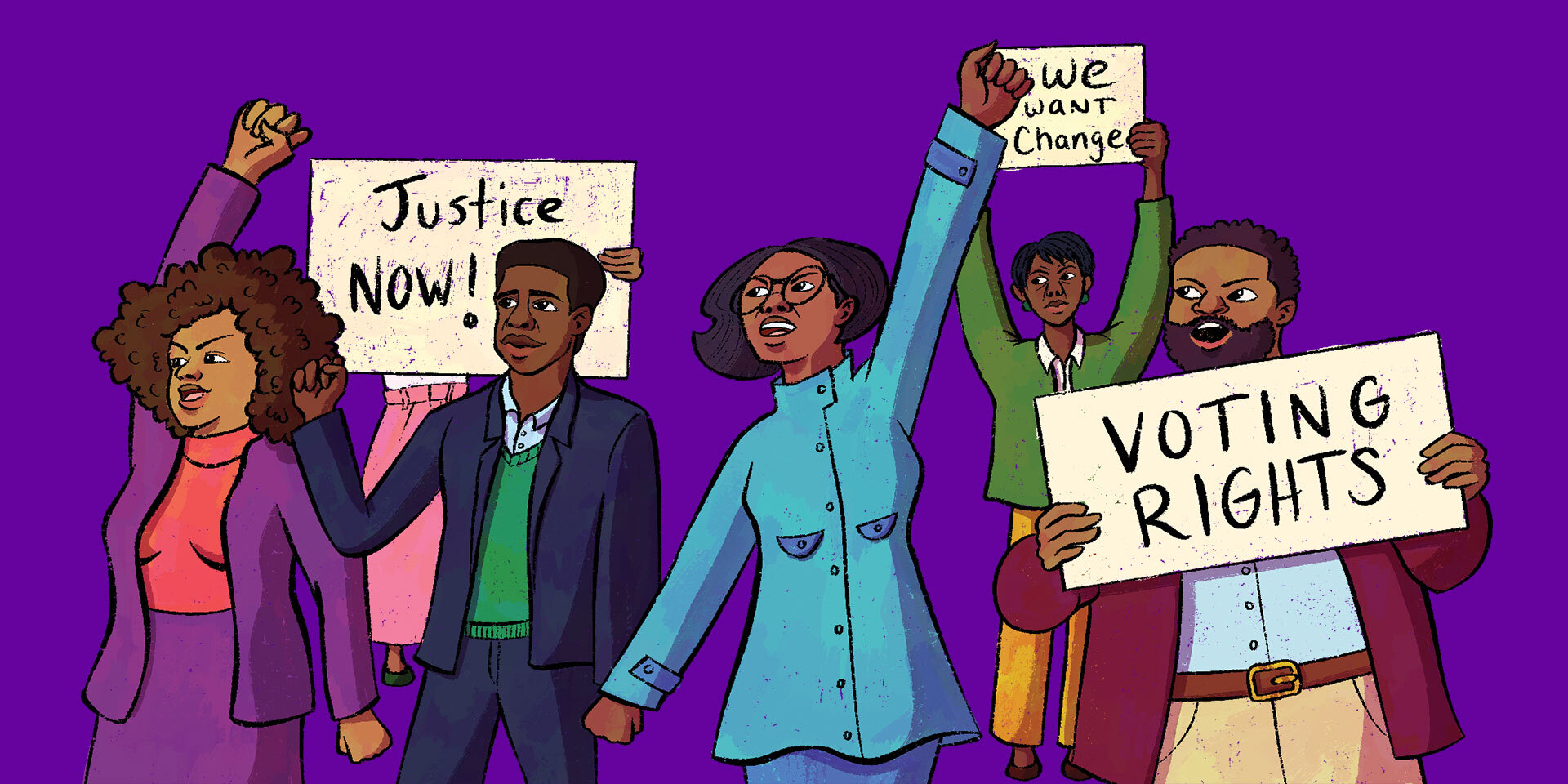The town of Utica, Mississippi, is small, with a population that dropped from 966 in the 2000 census to 636 in the 2020 count.
But even small towns, especially those in largely rural areas of the South, can have big problems. Resident Angela Stamps Burleigh said the issues with the water infrastructure in Utica rise to that level. She’s a customer of the Reedtown Water Association (RWA), one of three water providers for the town.
Burleigh eloquently detailed the problems residents experience in her turn during a listening session as part of the Southern Poverty Law Center’s Mississippi Truth, Poverty and Democracy Tour stop in Utica on Oct. 1. The tour brings together community leaders, advocates and people who are directly impacted by social justice issues to work toward solutions.
“I was letting the water sit and watch a film develop on the top of it, and that’s after it’s gone through the filter in the refrigerator. I didn’t want that. And then having to boil the water every time after they’d discover leaks,” Burleigh said.
“Oh, and we had bad meters before and I got an $800 water bill,” she said. “I couldn’t use that much water in a year. But the meters were not working properly. Those are my biggest complaints.”
And, as in many rural towns, Utica’s aging water distribution system is one that requires an expensive fix.
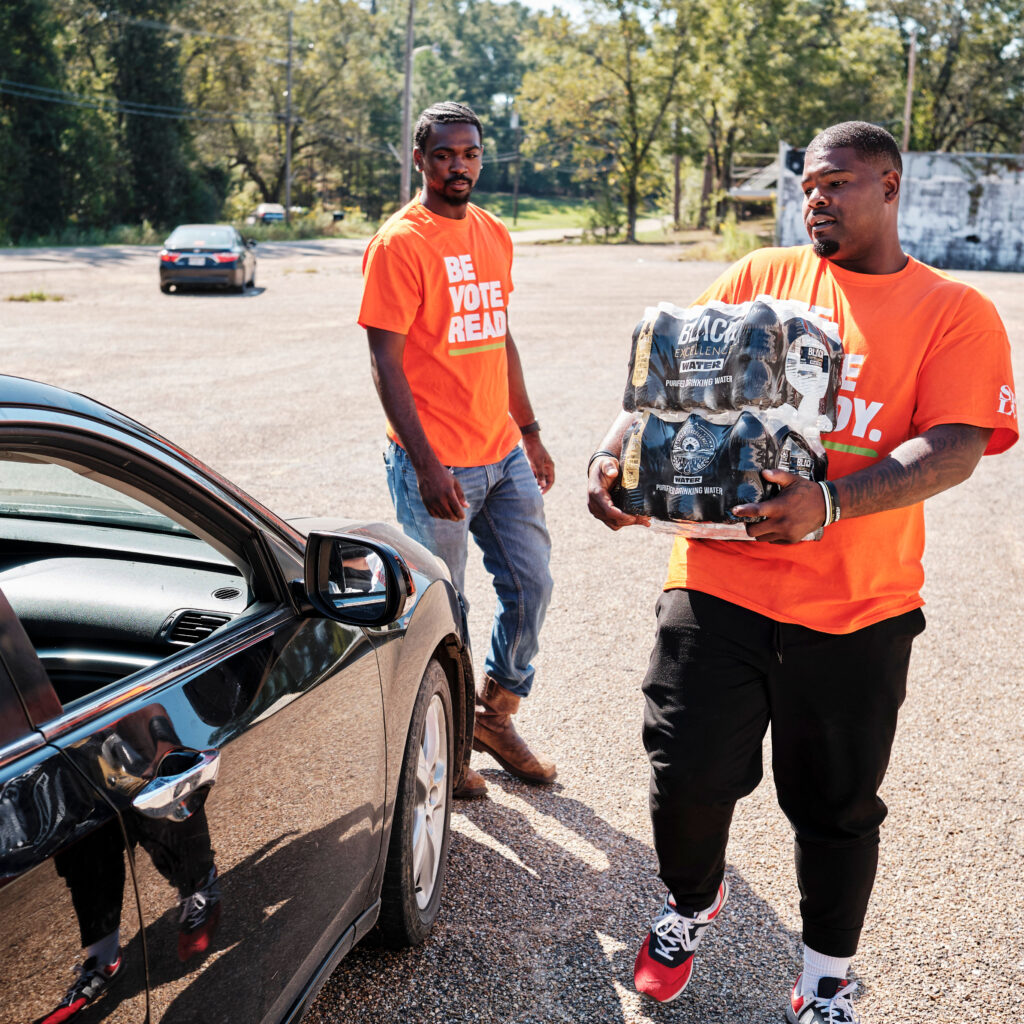
“We are trying to gather $20 million to address and redo the infrastructure for the water,” said Monica Bradshaw, who, in addition to being an RWA customer, was recently sworn in as a member of the Reedtown Water Association board of directors. “If not, we’re going to continuously have these same issues.”
Bradshaw said one of the biggest contributors to the decay in water delivery was not the toll of time, but another sort of negligence.
“We had board members, God bless them,” Bradshaw said. “But the business aspect of it — they left that role to the office manager. … So, the lack of money, aging infrastructure and negligence are three of the primary reasons that we find ourselves in the position that we’re in now.”
Utica Mayor Calvin Williams said that solving the problems in Utica will take a holistic overhaul of the system, as Bradshaw is proposing.
“Until you address all the issues, you’re not going to be able to solve the problem,” Williams said. “Systems do not get into the predicament that we’re in overnight. These systems are 10, 15, 20, 30, 40 years in the red. And we’re not just kicking the can down the road. That’s what’s been happening.”
Image at top: Nayla McClure (center, in orange), a graduate of the Southern Poverty Law Center’s Mississippi Advocacy Institute, hosted a water drive in Utica, Mississippi, on Oct. 1, 2025, to bring awareness to her community’s water insecurity. (Credit: Dan Anderson)



